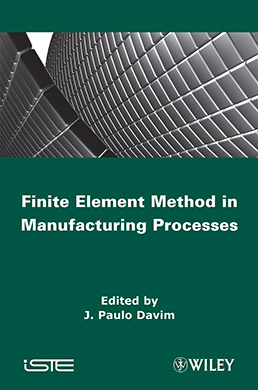
Nowadays, the finite element method (FEM) has become the main instrument for simulating manufacturing processes. It is made up of a complex process involving a variety of physical phenomena, such as plastic deformation, frictional contact, thermo-mechanical coupling, burr formation mechanisms, etc. Experimental approaches to study the manufacturing processes are important but they can be replaced by FEM analysis, especially when a wide range of parameters is involved such as process parameters, material of the workpiece and tool types.
This book aims to provide some fundamentals on research advances on FEM applied in manufacturing processes such as machining, bulk deformation, sheet metal forming, surface treatments, micromanufacturing processes, etc.
Useful as a research book for final undergraduate engineering courses (for example, mechanical, manufacturing, etc.) or as a subject on numerical methods at the postgraduate level, this book can also serve as a useful reference for academics, manufacturing researchers, mechanical and manufacturing engineers and professionals in relation to manufacturing and computational mechanics.
1. Authentication of FEM in Metal Cutting, Viktor P. Astakhov.
2. Finite Element Modeling of HSM with Coated Tools, Muhammad Fahad, Paul T. Mativenga and Mohammad A. Sheikh.
3. Experimental and Numerical Modeling of Tube End-Forming Processes, Pedro A. R. Rosa, Luis M. Alves and Paulo A. F. Martins.
4. Finite Element Modeling of Rolling Processes, Uday Shanker Dixit.
5. Finite Element Modeling of Ball-Burnishing Surface Treatments, Ainhoa Celaya, Luis Norberto López De Lacalle, Joseba Albizuri, Adrian Rodriguez and Aitzol Lamikiz.
6. Combining the Finite Element Method and Artificial Intelligence in Manufacturing Modeling and Optimization, Ramón Quiza and J. Paulo Davim.
J. Paulo Davim is Aggregate Professor in the Department of Mechanical Engineering at the University of Aveiro, Portugal and is Head of MACTRIB (Machining and Tribology Research Group). His main research interests include machining/manufacturing processes and tribology/surface engineering.